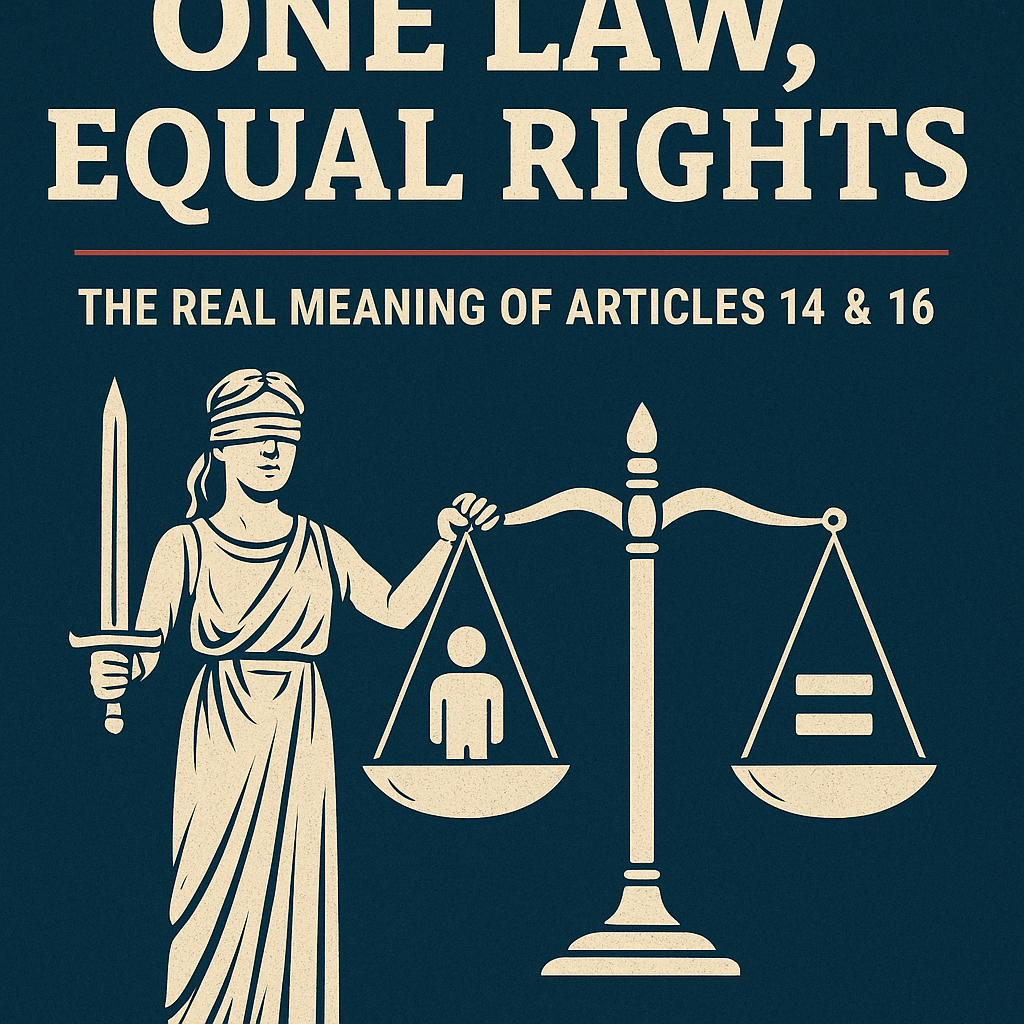Understanding Equality in the Indian Constitution: Articles 14 and 16
If you’ve ever wondered what gives every citizen in India the right to be treated equally, look no further than Articles 14 and 16 of our Constitution. These two articles are at the heart of the idea of fairness and justice in India.
✨ What is Article 14?
Article 14 says: “The State shall not deny to any person equality before the law or the equal protection of the laws within the territory of India.”
In simple words:
- No one is above the law.
- Everyone must be treated equally by the government.
But does this mean everyone must be treated exactly the same? Not always.
The law allows for reasonable classification. This means the government can make rules that apply differently to different groups, but only if:
- There’s a good reason for it.
- The rule helps achieve that reason.
Example: Giving free education to poor children is allowed even if rich kids don’t get it – because the goal is to help those in need.
📝 Famous Case: E.P. Royappa v. State of Tamil Nadu (1973)
The Supreme Court said equality is not just about treating everyone the same. It’s about making sure rules are not unfair or random.
✅ What is Article 16?
Article 16 deals with equality in government jobs. It says:
- Everyone should have equal opportunity to apply for and get a government job.
- You can’t be denied a job just because of your religion, caste, gender, or where you’re from.
But Article 16 also allows for reservations to help certain groups that have been left behind.
These reservations are allowed for:
- Socially and educationally backward classes (like SC/ST/OBC)
- People from economically weaker sections (EWS)
- Promotions in some cases for SC/ST
This means equality isn’t just about treating everyone the same, it’s also about giving support to those who need it most.
🔹 Big Case: Indra Sawhney v. Union of India (1992)
The Supreme Court said reservations are fine, but the total should not go above 50% in most cases.
🌟 Latest Update: Janhit Abhiyan v. Union of India (2022)
This case upheld 10% reservation for Economically Weaker Sections (EWS), even if they don’t belong to SC/ST/OBC. The Court said this doesn’t break the rule of equality.
🔒 Can a State Give Too Much Reservation?
In 2024, a court stopped a law in Bihar that wanted to increase total reservation to 65%. The court said that too much reservation can harm merit and fairness.
Similarly, the Supreme Court is again looking into Maratha reservation laws in 2025 to check if they go against the 50% rule.
📆 Conclusion
Articles 14 and 16 make sure that no one is unfairly treated and everyone gets a fair chance. At the same time, they also allow the government to take positive steps to help those who need extra support.
Equality in India isn’t just about treating everyone the same – it’s about creating a level playing field so that everyone can rise.
For Law Students:
Want to explore more? Check out:
- E.P. Royappa v. State of Tamil Nadu (1973)
- Indra Sawhney v. Union of India (1992)
- Janhit Abhiyan v. Union of India (2022)
- M. Nagaraj v. Union of India (2006)
- Tinku v. State of Haryana (2024)

